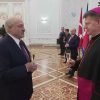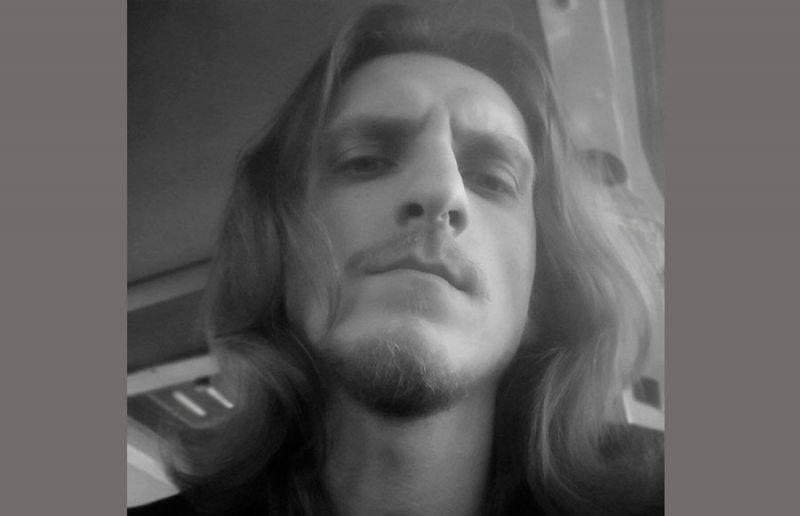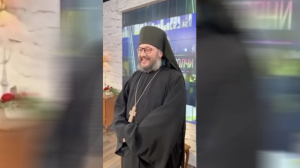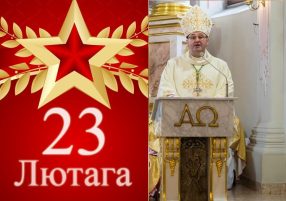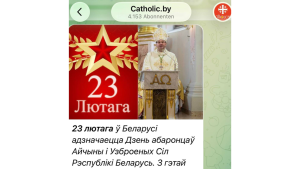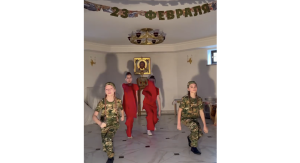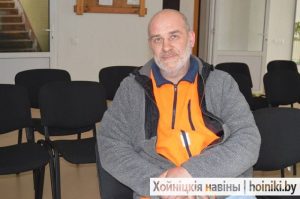The Vatican Reactions to the Belarusian Crisis

On matters concerning Belarus, the Vatican traditionally maintains neutrality, avoids political statements and seeks solutions to problems through diplomatic means.
Local Church leaders’ reaction to the political crisis: shifting from neutrality to demands for justice
The stolen presidential elections of 9 August 2020 in Belarus were followed by peaceful protests all over the country and the extremely brutal police violence against the protestors. Thousands were detained and tortured, severely beaten and shot with flashbang grenades. The violence was increasing exponentially and provoked new waves of peaceful protests. 10 August, an unarmed 43-year-old protestor, Aliaksandr Taraykouski, was shot by the police in Minsk. 12 August, 25-year-old Aliaksandr Vikhor was detained and died without medical help.
In the midst of these tragic events, Minsk Metropolitan of the Catholic Church in Belarus, archbishop Tadeusz Kondrusiewicz, issued his first statement on 11 August[1]. The position of the Belarusian church leader in that document was ambiguous. Although he referred to democratic protests as ‘peaceful’, he insisted, however, that “the blood was shed on both sides”. He called for “both parties of the conflict to stop the violence”. He also proposed “in order to overcome the crisis in society to urgently convene an emergency round table to decide the future of our Fatherland at it, and not at the barricades”.
Such rhetoric presupposed, firstly, that peaceful protests were not so peaceful; that the protestors bore responsibility for the violence to the same extent as the police. Secondly, it sounded like a condemnation of the protests (‘barricades’) as a means to decide “the future of the Fatherland”. This was in spite of the people’s failure to change the government by the regular democratic procedure of elections, which were severely abused and rigged; in spite of the protests remaining the last resort when other means proved to be unavailable.
Kondrusiewicz’s call for dialogue in a form of a ‘round table’ was inspired by the successful 1989 Round Table in Poland where the Catholic Church acted as a mediator between the authoritarian regime and opposition. It resulted in a peaceful transition of power and democratisation. This explains why maintaining neutrality between the two parties of the conflict was so important for Kondrusiewicz. However praiseworthy the idea of dialogue with the Catholic Church’s mediation, it was not transferable and implementable in the context of the Belarusian crisis. The semi-condemnation of protests by Metropolitan Kondrusiewicz sounded demoralising; it was unjustifiably weak in condemning and preventing police violence.
The initial escalation of violence was stopped not by the voice of the churches and church leaders but by the solidarity chain of Belarusian women dressed in white, holding flowers and smiling on 12 August 2020. Bishop Yuryj Kasabucki commented[2] on this while addressing the Belarusian women:
You took the flowers, you came out, you stood, you showed the whole world what confused everyone – in our country and in all other countries. You came out, you started waving these flowers. Your smiles, your smiles – you just amazed everyone, everyone was shocked… You came out and you began defeating evil with good…
After all, if you went out and started fighting, struggling, it would not bear fruit. It has borne fruit because you came out and you overcame this evil with your goodness. You may not have known that but you defeated the devil with your goodness; the devil was also confused and did not know what to do next.
Thanks to the women’s chains of solidarity, the peaceful nature of the protests became obvious and stronger. On 14 August 2020, Kondrusiewicz shifted his focus and issued an updated, more balanced and realistic statement addressing now the representatives of the state authorities in Belarus – “those in power”[3]. In this statement, the archbishop supported the protestor’s claims. He insisted that the protesters were “peaceful”, they were motivated by “seeking the truth about the presidential elections of 9 August”, and that it is the right of the people “to know the truth which shall not be sacrificed for the sake of someone’s political and opportunistic interests”. He also argued, that
the shed blood on the streets of our cities, the beatings of people who came to peaceful demonstrations because they wanted to know the truth, their cruel treatment and detention in inhuman conditions in prisons are a grave sin on the conscience of those who give criminal orders and commit violence.
While in his first statement Kondrusiewicz called on “both parties of the conflict to stop the violence”, in the second one he addressed the authorities “to begin a constructive dialogue with the society, to stop violence and urgently release all the innocent citizens detained at the peaceful demonstrations”. Moreover, on 18 August, the archbishop addressed the regime’s minister of internal affairs, Yuri Karayev[4] asking him to allow pastoral visits to the detained after the presidential elections and to release all the detainees; he also asked for a meeting to discuss the ways of preventing violence in the future. On the same date, he prayed by the walls of a remand prison[5] and launched an inter-religious prayer for the resolution to the crises in Belarus[6].
The regime’s reaction to these activities of the Catholic archbishop followed soon. On 31 August 2020, he was prevented from entering the country on his way back from a private trip to Poland on the pretext of an invalid passport. Commenting on this incident Lukashenko accused Kondrusiewicz personally and the entire Catholic Church in Belarus of working against the state[7]. At the same time, the results of the Christian Vision Group’s internet survey in January 2021 showed that nearly 99% of Catholics, including clergy, theologians and parish activists who mostly shared the agenda of the peaceful protests also supported metropolitan Tadeusz Kondrusiewicz’s address to Yuri Karayev concerning police violence[8].
In September, following the ban on Kondrusiewicz’s return to the country, the regime got instead another outspoken leader of the Roman Catholic Church in Belarus. Auxiliary bishop Yuryi Kasabucki became the new voice of the church leadership. In the interview on 1 September 2020, he openly condemned the persecutions of the Catholic Church[9]. On 5 September 2020, he lead the all-city Procession of the Cross in Minsk to raise awareness of these persecutions. At the event, he said a sermon openly condemning police violence and calling for peace, and praising the Belarusian female protestors[10]. He often was outspoken on social networks when commenting on particular cases of unacceptable violence, injustice and persecutions.
One of those comments particularly outraged the authorities. The bishop criticised vandalising of the people’s memorial of Raman Bandarenka, a 31-year-old protestor murdered in Minsk in November 2020 by the gang of regime supporters. Lukashenko expressed his anger about the outspoken clergy of Catholic and Orthodox churches. On 18 November 2020, bishop Kasabucki and the press secretary of the Belarusian Orthodox Church, Fr Sergy Lepin, were summoned to the prosecutor general’s office. They were issued with a written warning. A week later, the investigative committee informed them of a linguistic examination of their social network posts. Even under constant control and pressure, bishop Kasabucki continued commenting on social networks expressing solidarity with persecuted people. On 18 November, after he supported TUT.BY, the largest independent Belarusian media, unknown people attacked the building of the curia of Minsk-Mahilioŭ archdiocese.
Due to an outspoken position, the Catholic Church in Belarus, its clergy, laity, communities and organisations experienced a range of intimidation, repressions, attacks and pressure[11].
Vatican’s reactions to the Belarusian political crisis: generic words about dialogue, rejection of violence, respect for justice and human rights
The first reactions of the Holy See to the political crisis in Belarus took place in the first days after the elections. 13 August 2020, the Holy See’s Permanent Observer to the United Nations, archbishop Ivan Jurkovič, intervened during the debate at the session of the Human Rights Council on the situation of human rights in Belarus. At the beginning of the 2000s, Jurkovič was an apostolic nuncio in Belarus. He said that the Holy See “renews its appeal for a peaceful and just resolution to the tensions through sincere dialogue, the rejection of violence, and respect for justice and fundamental human rights”[12].
Although the archbishop called the governing authorities to “exercise restraint and listen to the voices of their citizens and remain open to their just aspirations, assuring full respect for their civil and human rights”, he, first of all, called on demonstrators to “present their requests in a peaceful way”. This presumed that the peaceful character of the protests had to be the precondition for being listened to by the authorities and assigned the primary responsibility for the dialogue to the protestors. The call on protestors to present their requests in a peaceful manner presumed that the protestors were doing otherwise and had to be called to peace. This wording effectively questioned the peaceful character of the Belarusian protests and, therefore, played to the regime’s claims. By assigning demands first of all on protestors, by not admitting the essentially peaceful character of those protests, by putting peaceful protestors with their legitimate demands and their moral position on an equal footing with the authoritarian regime, which rigged the results of the election and had at its disposal repressive apparatus and structures of violence, the Vatican speaker provided the regime with an indulgence in relation to human rights abuses and refusal to listen to the protestors’ demands.
16 August 2020, after the Sunday Angelus at the St Peter’s Square, Pope Francis voiced[13] his attention to “dear Belarus” in connection with “the post-electoral situation in that country.” The Pope entrusted Belarus to Madonna, the Queen of Peace, and called for “dialogue, the rejection of violence, respect for justice and rights” without naming the parties responsible for the political crisis. Effectively, the Pope provided the widest possible framework for the interpretation of his views. However, taking into consideration, firstly, that the demands of the democratic movement were based on ceasing violence, re-establishing justice and rule of law, and on the dialogue for the transit of power; and, secondly, the presence of the representatives of the Belarusian diaspora at the St Peter’s Square with white-red-white national flags associated with the democratic movement, and Pope waving to them from his balcony, – the mentioning of Belarus at Angelus could be interpreted as rather in favour of the democratic movement.
A month later, after archbishop Kondrusiewicz had been denied entry to the country and a special delegation from the Holy See travelled to Minsk to resolve this matter, Pope nuanced his statement. It was adjusted to archbishop Jurkovič’s statements. At Angelus on 13 September, when the Holy See delegation was in Belarus, Pope Frances elaborated on the situation of protest demonstrations, not naming Belarus specifically but meaning it neverteless[14]. Firstly, he urged protestors to present their claims “peacefully, without succumbing to the temptation of aggression and violence.” Secondly, he called the authorities to “listen to the voice of their citizens and welcome their just aspirations assuring complete respect for human rights and civil liberties.” And thirdly, he invited churches to “do everything possible “in favour of dialogue”, and “in favour of forgiveness and reconciliation”.
In the case of Belarus, protestors acted in line with Pope’s call: they presented their claims in a peaceful manner. The authorities, however, neither assured respect for human rights nor listened nor welcomed people’s aspirations. In such a situation, the Pope’s idea for churches to support dialogue and reconciliation was unrealistic. Two parties involved in the Belarusian crisis – the regime and the people – were not on an equal footing from the moral point of view: one side demanded dialogue, while another was avoiding it answering to peaceful and legitimate demands with repressions, violence and suspension of the rule of law.
In the specific context of the Belarusian crisis, on purpose or by coincidence, the Pope’s words about dialogue and reconciliation resonated with Lukashenko’s proposal from 9 September voiced in his first large interview to Russian media since the beginning of the political crisis: “to turn the page over”[15]. While in the middle of August the idea of dialogue was promoted by the democratic forces as a means for transformation of the political regime in Belarus, in September – after the regime had started reconsolidating and unfolding the machine of repression, and the leaders of the Coordination Council of Belarus were arrested and exiled – the idea of “dialogue” and “reconciliation” sounded rather as a synonym for curtailing the protest, normalising the situation on the regime’s conditions and enforcing the status quo.
To an extent, that was also a semi-condemnation of Kondrusiewicz’s position who, eventually, stood to the regime of Lukashenko and advocated for justice, human rights and suspension of violence; Kondrusiewicz grasped the meaning of the democratic protestors’ claims. Despite the fact that the archbishops words and actions found cordial support among Catholic laity and clergy, and from the faithful of other Churches (Orthodox laypeople organised a flashmob of solidarity with Kondrusiewicz), as well as from the democratic movement making Kondrusiewicz one of its the hero-figures, the Vatican did not appreciate that. It became apparent when the “problem of Kondrusiewicz” was finally solved between the Belarusian regime and the Holy See by Kondrusiewicz’s timely retirement.
Soon, the Vatican’s appeasement of the authoritarian regime became obvious to the Belarusian diaspora in Italy too. Remembering the first Angelus in August 2020 when they were allowed to come with white-red-white flags and received a warm welcome from the Pope, Belarusian attempted to bring a large, 30 square metres, flag to the Angelus on 8 November 2020. Before coming to St Peter’s Square, the group’s representatives went to security to inform about the flag and its dimension. After a thorough inspection, they were told that the flag would not be allowed at St Peter’s Square because it was a “Lukashenko opponents’ flag“, not the state flag. They were also prevented from bringing smaller flags and a banner with the word ‘Belarus’. After checking their documents, the Belarusian women, including pregnant ones, were asked to lift their shirts to ensure nothing was written on their bodies. This caused a great upset to the group[16].
The next Holy See statement concerning Belarus was made following the forced landing of Ryanair flight on 26 May 2020. The western democracies reacted rapidly and strongly by adopting on 21 June the fourth package of sanctions in response to enduring repressions and the forced landing of a Ryanair flight “to initiate a genuine and inclusive national dialogue with broader society and to avoid further repression”[17]. The Holy See’s statement was announced by Matteo Bruni, director of the Holy See press office: “The Holy See is following attentively steps undertaken by different subjects which are involved in the events happening in the country. Together with this, Vatican remains faithful to its commitment to promote democratic and peaceful solutions to the legitimate requests of the Belarusian people”[18].
This new wording was more balanced. Firstly, it included the recognition of “different subjects” in the Belarusian political process, including democratic forces, not only the regime. Secondly, a new qualification for such forces – “democratic” – appeared in the statement. Thirdly, there is an idea of “legitimate requests of the Belarusian people” as part of the political process, which might be in conflict with the regime’s interests as something opposite to the Belarusian people’s interests. Finally, the Vatican positions itself as not only an observer which “follows attentively steps” of others but also as a contributor to solving the crisis ready to “promote” and, therefore, to be a participant in the process.
Kondrusiewicz’s case: reaction of the Vatican
When the head of the Conference of Catholic Bishops of Belarus, Metropolitan of Minsk archbishop Tadeusz Kondrusiewicz was prevented from entering the country on 31 August, after a series of his statements against violence and in support of justice, respect to human dignity and rights, the Vatican did not produce any official statements regarding such a blatantly hostile act against the Catholic Church in Belarus. Instead, it chose diplomatic means to deal with the situation. A delegation headed by archbishop Paul Richard Gallagher, Secretary for Relations with States of the State Secretariat of the Holy See, was sent to Minsk. Mons. Paul Butnaru became responsible for a specially established desk on Belarus in the Holy See Secretariat. The delegation also included archbishop Antonio Mennini, who was apostolic nuncio in Russia at the same time as Archbishop Kondrusiewicz was leading the Catholic Church in that country; there were tensions between the two of them.
The delegation was in Minsk on 11-14 September 2020. They met with the minister of foreign affairs, Uladzimir Makei[19]. The delegation also met with Belarusian Catholic hierarchs and discussed “the way for the local Church to continue staying faithful to its identity and the Gospel mission, while also remaining an effective tool of social cohesion”[20].
Initially, this visit led not to the return of Kondrusiewicz but to the arrival of the new apostolic nuncio to Belarus. The office of the apostolic nuncio in Belarus was vacant, although Croatian diplomat Ante Jozić had been appointed to this position in May 2020. His episcopal ordination was still pending since 2019: initially, he was seriously injured in a car accident in Croatia, then Covid-related restrictions on mass gatherings came in place. Soon after the Holy See delegation’s visit, Ante Jozić was ordained and arrived in Belarus. He became the only western diplomat to present credentials to Lukashenko as the country’s president in the midst of the regime’s legitimacy crisis after the disputed 2020 elections, secret inauguration and continued repressions
In December, the Holy See undertook another step for solving Kondrusiewicz’s problem. Pope’s special envoy, archbishop Claudio Gugerotti, a nuncio in Belarus in 2011-2015, arrived in Minsk for a meeting with Lukashenko in presence of Uladzimir Makei that took place on 17 December. According to Vatican press-secretary Matteo Bruni, the purpose of this meeting was “to express the Holy Father’s concern about the current situation in the country”[21]. The German-language edition of the Vatican News related this visit[22] to Sviatlana Tsikhanouskaya’s letter to Pope Francis in which she asked “for Your holy prayers and Your genuine word of truth and justice, which will be a blessing for all of us”[23].
However, it was Lukashenko who saw himself as a true beneficiary of that meeting: “I have always said that the current Pope Francis, from my point of view – I closely watched his predecessors, they were not bad people – but Francis is a people’s man. This is what fascinates me a lot”[24].
Lukashenko was satisfied with the results of the negotiations and “considered meeting the request of the Pope of Rome possible”[25]: Kondrusiewicz would be able to return to Belarus “despite a number of negative points associated with this person”, as the regime’s ministry of international affairs pointed out. Lukashenko archbishop Kondrusiewicz to return to Belarus on Christmas Eve. This decision was taken due to Lukashenko’s “deep respect to the Pope of Rome” and “very close, friendly, personal relations” with him.
On his return, Kondrusiewicz was not re-established as Minsk Archbishop. Just a few days later, “Pope of Rome Francis, a sincere person treating Belarus with love and admiration” accepted his resignation due to reaching the retirement age on 3 January 2021, the day of archbishop Kondrusiewicz’s 75th anniversary. Bishop Kazimir Wielokosielec, almost a year elder than Kondrusiewicz, was appointed as a temporary administrator of the Minsk-Mahilioŭ Archdiocese. Wielikosielec stayed in this position until September 2021 when Józef Staniewski got appointed as a new plenipotentiary archbishop[26].
Belarusian experts Siarhei Ablameika and Piotr Rudkouski came to the same conclusion that, considering its capitulation to the regime and accepting the compromise, the Vatican choose the path of least resistance in the case of Kondrusiewicz[27].
Clinking champagne glasses with the dictator: controversial nuncio Ante Jozić
On 3 November, while receiving archbishop Ante Jozić’s credentials, Lukashenko triumphantly admitted: “Belarus and the Vatican have a special relationship. In the international arena, we are consistently promoting such important initiatives as combating human trafficking, combating violence against children, protecting traditional family values.”[28]
Nuncio reaffirmed “the Holy See’s support to deepening our relations. I will be open for dialogue and solving the remaining open issues for the good of the people of the country, not only of the Catholic Church, but all”. Lukashenko, before joyfully clinking glasses of champagne with Archbishop Jozić, praised Pope Francis: “I respect him [the Pope] endlessly, I met many of his predecessors, but this one is the best Pope of Rome”[29].
In the context of persecutions of the Roman Catholic Church in Belarus and diplomatic isolation of Lukashenko by western democracies, and compared to the strong positions of the local Catholic hierarchy expressed since the beginning of the political crisis, this incident during the ceremony of presenting Nuncio’s credentials scandalised the Belarusian society and Catholics.
In the Christian Vision Group’s internet survey, 84% of Catholics and 76% of the Catholic clergy, theologians and parish activists who took part in the survey and mainly shared the agenda of the democratic movement were disappointed by the nuncio’s behaviour during the ceremony[30]. In protest, a Roman Catholic deacon Yury Rashatko stood in front of the Minsk Archcathedral with a banner ‘Contradicitur!’ [objected][31].
Another controversy related to archbishop Jozić’s acting on behalf of the Roman Catholic Church in Belarus. Although he was not its representative, he signed the initiated by the regime appeal to Belarusians about peace and reconciliation. The appeal aimed to involve religious organisations in symbolic actions in support of Lukashenko and his policies for reestablishing social cohesion, enforcing the status quo and his legitimacy as a president, and suppressing the protests.
In the pre-Christmas appeal, Belarusian religious leaders wrote: “we address our word of love with emotion to every compatriot and call for peace, forgiveness and reconciliation; we urge you to forget your grievances and continue to build our common home again and together.”[32] The appeal appeared in the context of the 2021 Year of National Unity and Cohesion announced by the regime. The appeal was signed by Metropolitan Veniamin (Tupeko) on behalf of the Orthodox Church; mufti Abu-Bekir Shabanovich – for the Muslim community; a representative of the Chabad-Lubavitch movement rabbi Shneur Zalman Daich – for the Jewish community. In absence of the head of the Roman Catholic Church in Belarus Metropolitan Tadeusz Kondrusiewicz, the appeal was signed not by local hierarchs, but by the apostolic nuncio archbishop Ante Jozić.
While at the beginning of his office of the apostolic nuncio Ante Jozić’s activities could be interpreted as supportive of the regime, the interest of the regime in his instrumentalisation decreased since Kazimierz Wielikosielec assumed the role of apostolic administrator in place of Tadeusz Kondrusiewicz. The role of loyal representative of the Catholic Church supportive of Lukashenko could now be played by a Belarusian bishop.
At the same time, Ante Jozić showed his care for political prisoners. On 3 June 2021, he visited Volha Zalatar, a political prisoner, Catholic volunteer and activist, mother of five children. He left the Bible and a prayer book for her. Zalatar was tortured during her arrest and detention, she was deprived of pastoral visits and religious literature. 70 Catholic priests signed an appeal to the investigative committee to end the criminal prosecution against Zalatar[33].
During the festivities of the Bialyničy icon of the Mother of God, Ante Jozić publicly welcomed the release of 13 political prisoners in September 2021. He appealed to facilitate this process further for “the sake of the national reconciliation”[34].
Relations with the democratic forces
The Belarusian democratic movement attempted to establish its own communication with the Vatican, to draw Pope’s attention to grave violations of human rights and terror against the civil society, and hostile incidents against the Roman Catholic community expecting the Holy See to raise its voice in favour of justice.
Sviatlana Tsikhanouskaya, the leader of the democratic movement, was the first political leader to respond to Francis’s Fratelli Tutti encyclical with an open letter, Fraternal Society: A Vision For a New Belarus[35], accepting Pope’s invitation to dialogue. She drew His Holiness’s attention to the situation in Belarus, shared the democratic movement’s vision of social and political order based on justice, love, solidarity, respect for human dignity and dialogue. Sharing the Pope’s encouragement of dialogue, Tsikhanouskaya suggested it as a basis for overcoming the political crisis in Belarus. She asked the Pope:
But how should we build this dialogue? How can we demand justice if one party — the one that has weapons and power — is not going to return stolen votes or restore justice or stop violence and repression, but proposes only to “move on”, “to turn the page”, to accept injustice saying that it is necessary “to look to the future”? (§249)
This was Tsikhanouskaya’s request to the Vatican or a more clear position, but she has never received any reply. There were other letters with similar requests which also remained unanswered. Among them: From Mum of Francišak to Holy Father Francesco by Volha Sieviaryniec, the wife of an Orthodox believer, Christian politician and pro-life activist Paval Sieviaryniec[36]; from Belarusian political prisoners’ wives and mothers[37]; from Ihar Losik, a political prisoner and Catholic believer who went on hunger strike protesting against injustice against him. In his letter, Losik appealed to Pope to raise the voice not in support of him, but in support of truth and justice in the country[38].
Fr Viachaslau Barok, one of the most outspoken clerics of the Roman Catholic Church in Belarus and a member of the working group Christian Vision Working Group who faced persecutions for his blogging on the situation of Belarus in the light of the Catholic teaching, also addressed to Pope Francis in a November 2020 video titled Pope Francis, How Do You See Yourself in Relation to Belarus[39]. Similarly to Sviatlana Tsikhanouskaya, Fr Barok referred to the Fratelli Tutti encyclical. He asked its author, how – in the context of the parable of Good Samaritan, the central image of the encyclical – Pope sees himself in relation to the Belarusian people:
The aim of my appeal is to find an answer to the question: what shall we do to bring peace to Belarus? How to stop this war?
I have read your Encyclical, Fratelli Tutti, several times. I explained to others how relevant your message was for Belarus. However, I cannot find an answer to my own question of how it is possible to have a dialogue with those who do not want a dialogue. How the “architecture of peace” is possible without dialogue? Our Metropolitan Tadeusz Kondrusiewicz was expelled from the country as soon as he raised a question of dialogue.
I am losing faith that those who have had a taste of human blood can come to their senses and start talking.
At the same time, the one who proclaimed that “today is not the right time to observe laws” happily met with your envoy to Belarus, archbishop Ante Jozić. The regime propaganda happily spread the image of the nuncio and the person who publicly confessed to ordering the murder of innocent citizens drinking champagne together. This was too much for Belarusians.
Fr Barok received no answer from the Pope. However, two weeks later he was arrested for ten days, escorted to prison by people with machine guns and shepherd dogs. After half a year of persecution, he became a refugee in Poland.
None of the numerous addresses from the Christian Vision Group received formal replies from the Vatican. The representatives of the democratic community regularly inform the Vatican about the events in Belarus, about the cases of undue pressure on churches, religious leaders and laity, about violations of rights and freedoms; they report both on the most striking cases and on trends. The Vatican’s contacts with the democratic movement remain mostly non-public.
The only exception was the meeting of Sviatlana Tsikhanouskaya with the apostolic nuncio in France Celestino Migliore, a former nuncio in the Russian Federation, which took place in Paris on 17 September. The possibility of Tsikhanouskaya’s visit to the Vatican was discussed, however, such a visit has not happened at the end.
Also, the activities of diplomatic representatives, such as facilitating pastoral visits to political prisoners or monitoring the human rights situation in the country, are not public.
Conclusion
The Belarusian democratic movement has demonstrated high expectations and hopes for the Pope of Rome and the Vatican to raise their voices in the unequivocal condemnation of violence and injustice caused by the Belarusian regime and in solidarity with the Belarusian people. In Belarus, the image of the political orientation of the Pope and the Vatican is still under the influence of Pope John Paul II, his statements and actions in support of democratic transit in Poland at the end of the 1980s and in solidarity with the Polish democratic movement. This is the standard against which all the actions of the current Pope and the Vatican establishment are compared with. Neutrality, muddy wording and visibility of good relations with the regime have led to the growing frustration and distrust.
Catholic theologians criticised such a strategy. For example, a Canada-based Irish theologian David Deane has a particular interest in this issue due to his special relations with the leader of democratic Belarus Sviatlana Tsikhanouskaya – he knew since her teenage year. Deane appreciates the Pope’s pastoral rather than political approach. He, however, insists, that “Pope Francis’ acquiescence with brutal dictatorial regimes, such as Belarus, bolsters these regimes and enables their horrors”. According to him, the strategy which worked for Bergoglio as an archbishop in Argentina, for the Pope it turns into an “ideological aversion to ideology”, which has massive costs for people living under totalitarian regimes, like the dictatorship in Belarus, which he continues to support”[40]. Having the situation in Belarus close to his heart, Deane voices his disappointment in Pope Francis’ approach, especially regarding the “deal around Archbishop Tadeusz Kondrusiewicz”,[41] especially as the Belarusian regime “is the precise inverse of the kind of social order Fratelli Tutti calls for”. Why Pope Francis has not criticized it remains incomprehensible for David Deane.
Lukashenko, on the other hand, expresses satisfaction with the Vatican’s position, which he can instrumentalise to his advantage. While Sviatlana Tsikhanouskaya asks the Pope for answers, Lukashenko in his address to Pope Francis thanks him for “the achieved level of understanding, which allows finding solutions to any issues in an atmosphere of trust” and for “disinterested help and readiness for compromise which evidence that the Holy See takes care of Belarusian faithful and is interested in strengthening the society”[42].
[1] Обращение архиепископа Тадеуша Кондрусевича в связи со сложной общественно-политической ситуацией в Беларуси, 11.08.2020, https://belarus2020.churchby.info/obrashhenie-v-svyazi-so-slozhnoj-obshhestvenno-politicheskoj-situaciej/
[3] Обращение архиепископа Тадеуша Кондрусевича к представителям государственной власти Республики Беларусь, 14.08.2020, https://belarus2020.churchby.info/obrashhenie-k-predstavitelyam-gosudarstvennoj-vlasti/
[7] https://www.interfax.ru/world/724066
[11] Natallia, Vasilevich. Persecution of the Catholic Church, Clergy and Laity in Belarus, https://belarus2020.churchby.info/persecution-of-the-catholic-church-clergy-and-laity-in-belarus/
[15] https://russian.rt.com/ussr/news/818401-grazhdane-belorussiya-lukashenko
[16] https://www.facebook.com/100002569450259/posts/3354393474656268/?d=n
[18] https://www.vaticannews.va/ru/vatican-city/news/2021-06/zayavlenie-zala-pechati-o-belarusi.html
[23] https://tsikhanouskaya.org/en/events/news/f46df99254de4dd.html
[25] https://mfa.gov.by/press/statements/a1d467f90fa0d4c0.html
[26] https://press.vatican.va/content/salastampa/it/bollettino/pubblico/2021/09/14/0570/01230.html
[27] https://belinstitute.com/be/article/adstauka-arcybiskupa-kandrusevicha-kampramis-ci-kapitulyacyya
[31] https://t.me/christianvision/69
[33] https://belarus2020.churchby.info/christian-vision-statement-volha-zalatar/
[35] https://belarus2020.churchby.info/sviatlana-tsikhanouskayas-letter-to-the-holy-father-francis/
[36] https://belarus2020.churchby.info/from-mum-of-francisak-to-holy-father-francesco/
[37] https://belarus2020.churchby.info/belarusian-political-prisoners-wives-and-mothers-wrote-a-letter-to-pope-francis/
[39] https://www.youtube.com/watch?v=CajfYcdOQzg
[40] https://www.daviddeane.org/post/a-dictator-friendly-pope-lukashenko-and-pope-francis
[42] https://president.gov.by/ru/events/pozdravlenie-pape-rimskomu-francisku



